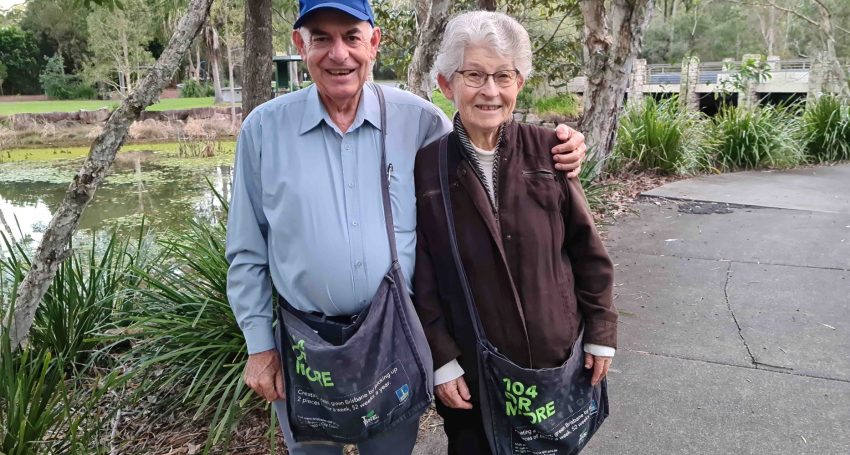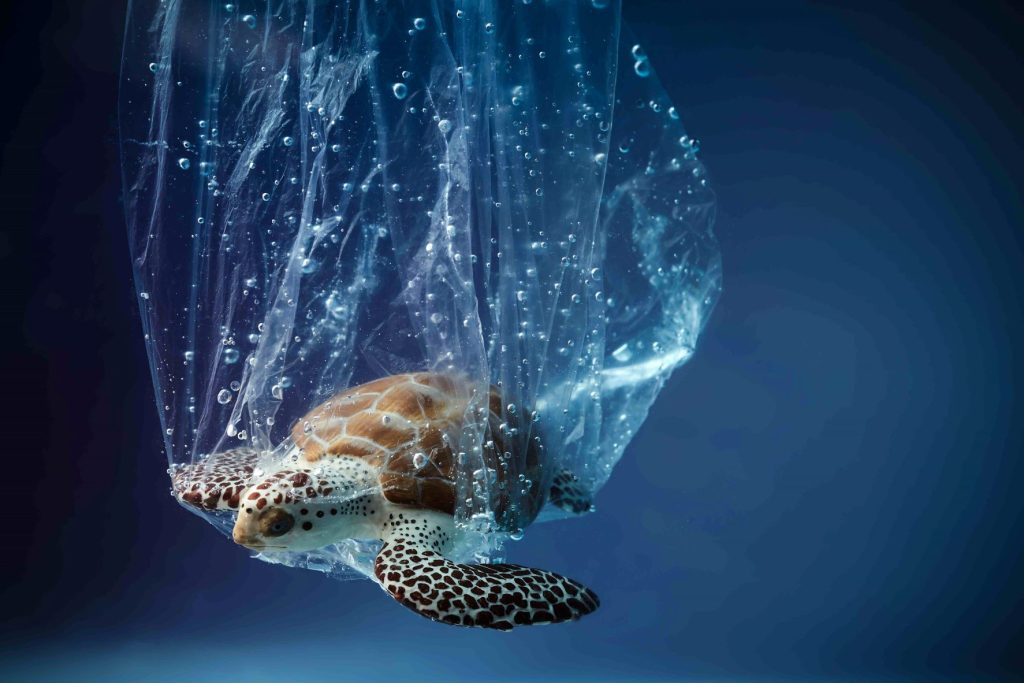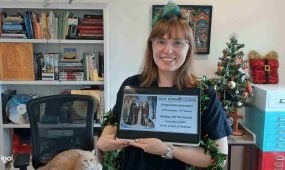Plastic pollution is a big problem that we can collectively take small steps to solve
Features
“On my afternoon walks with my wife, Alison, we each carry a shoulder bag because along the track we find considerable litter – many chocolate wrappers, plastic bags, take-away cups and other items. We collect soft plastics in one bag and the hard plastic containers, cups and cans in the other, so they are not washed into the creek,” says The Rev’d Peter Moore as World Environment Day approaches

I love walking around my suburb in the upper reaches of Blunder Creek in the Oxley Creek catchment of the Brisbane River. I enjoy the sounds of birds, frogs and insects in the late afternoon. It is so peaceful in the bush along the creek.
On my afternoon walks with my wife, Alison, we each carry a shoulder bag because along the track we find considerable litter – many chocolate wrappers, plastic bags, take-away cups and other items. We collect soft plastics in one bag and the hard plastic containers, cups and cans in the other, so they are not washed into the creek.
Advertisement
Litter in our creeks ends up in rivers and then in our oceans, threatening birds, fish, turtles and other creatures, whether the litter is whole or whether it breaks down into easily digestible particles.
I am particularly concerned about the soft plastics that break down into smaller and smaller particles because turtles and other sea creatures mistake them for food. Plastics now make up 80 per cent of all marine pollution, including the debris found floating on top of the ocean and deep-sea sediment. If things keep progressing as they are, by 2050 there will be more plastic in the oceans than fish, by weight.
Plastics disrupt the food chain – when an animal eats plastic, it gets passed down the food chain and damages the health of other animals. We also often hear news reports about fish and other sea animals being found near death or dead because their bodies are chocked up with plastic.
We all know that plastic is a problem and that our creeks, rivers and oceans are important. We also know that human beings are part of God’s creation, for the Bible tells us that: “The earth is the Lord’s and all that is in it, the world, and those who live in it” (Psalm 24.1).

“Litter in our creeks ends up in rivers and then in our oceans, threatening birds, fish, turtles and other creatures, whether the litter is whole or whether it breaks down into easily digestible particles” (The Rev’d Peter Moore, Chair of Angligreen)
So what would God’s creeks, rivers and oceans look like if we took better care of them? And, what would it look like if we are more responsible in our use and disposal of plastic?
Governments are increasingly addressing this issue by banning single-use plastics, improving waste and recycling infrastructure, and influencing product manufacturing so less plastic is used in design and packaging.
In addition, we can all collectively do our bit to reduce our plastic usage, dispose of our litter responsibly and safely, and improve our recycling. Plastic bags and soft plastic packaging can be taken to the REDcycle collection bins at major supermarkets. Hard plastics, along with paper, glass and metal, can be put into our residential recycling bins.
Advertisement
We can also avoid buying products with micro beads, which are tiny plastic beads found in personal care products, such as face scrubs, soaps, toothpaste and shower gels. These are banned in the UK because fish and other sea life mistake them for food.
This year World Environment Day is marked on 5 June, and this year’s theme is #OnlyOneEarth, as we are called to collective, transformative action to celebrate, protect and restore our planet. Held annually since 1974, it engages millions of people around the world.
Five things you can do for World Environment Day on Sunday 5 June:
- Take the World Environment Day Quiz.
- Go for a walk along your local creek, river or sea shore and collect rubbish – you can do this by yourself, with family or friends, or in a church group.
- Buy a reusable water bottle instead of purchasing single-use bottles.
- Do a home garbage audit – take a look at your garbage and investigate what items you throw away the most. For example, if you discover that you are throwing out plastic bags, then take them to your nearest REDcycle supermarket bin.
- Host a plastic-free World Environment Day event in your church, ministry, school or household.






